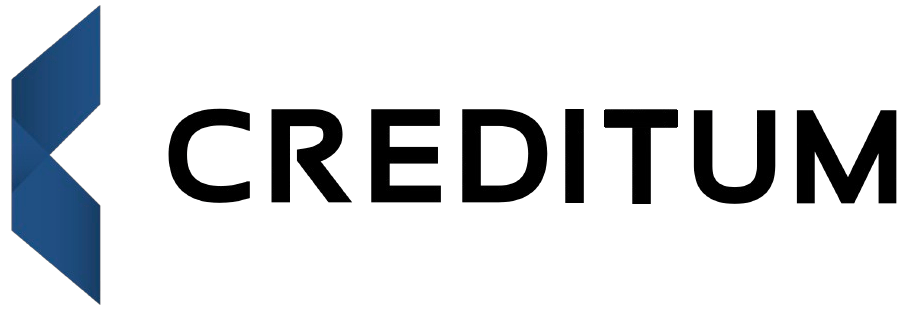Loans for Debt Review Clients
- No impact on your credit score when
you compare - Get offers in seconds
- Loan offers are non-binding

Even if you’re under debt review, there are financial pathways to explore. While traditional loans may be limited, some lenders focus on providing unique financial solutions tailored for individuals in this situation. It’s crucial to approach these options with caution, ensuring that you are not overextending yourself financially. Research these alternatives thoroughly to find offers that match your needs and support your goal of maintaining financial stability.
Understanding debt review
Debt review is a legal process in South Africa designed to help individuals manage their debts responsibly. This program offers a structured plan that aims to make debt payments more affordable. Under debt review, a debt counsellor assesses your financial situation and negotiates with creditors to potentially reduce monthly payments.
- Protects you from legal action by creditors during the review period.
- Helps consolidate debt into a single payment plan.
- Aims to provide a manageable solution to restore financial stability.
Not everyone qualifies for debt review, though. It’s tailored for those struggling to meet their debt obligations but who still have a steady income. A debt counsellor evaluates your financial situation to determine the suitability of the process for you. This ensures that only those genuinely in need can benefit from this financial relief.
Benefits of loans under debt review
For South Africans under debt review, getting a loan can seem difficult. Yet, there are notable benefits of considering such loans. One significant advantage is the potential for consolidating existing debts. This allows for easier management by combining multiple payments into a single, more manageable one, reducing financial stress.
These loans help in establishing a better credit history over time.
Another key benefit is the possibility of lower interest rates. Loans structured for debt review clients often come with terms that reflect their financial situation, offering reduced rates compared to traditional personal loans. This can lead to substantial savings in the long run, providing more room to breathe financially.
Challenges faced by debt review clients
For those in debt review, getting a loan can be quite the hurdle. Banks often see clients under debt review as high-risk individuals, making it hard to secure traditional financing. This is because their credit histories are marked with financial difficulty. Access to credit becomes limited, and options are reduced due to stringent lending criteria.
Apart from limited access, debt review clients also face higher interest rates when loans are approved. Since lenders see them as risky, they often compensate for potential losses by charging more. This can lead to more financial strain in the long run, creating a cycle that’s tough to break. Being informed and comparing loan offers diligently is essential to navigate these challenges effectively.
Steps to secure a loan
For debt review clients in South Africa, securing a loan might seem daunting, but it’s possible with careful planning. First, ensure you fully understand your financial position and debt obligations. This assessment provides a clear picture of your repayment capabilities.
Next, research options available specifically for debt review clients. Some lenders offer tailored solutions designed to help manage existing debts while providing new credit. Consider reaching out to financial advisors who can offer guidance tailored to your situation.
- Begin by collecting essential documents like proof of income and identification.
- Prepare a detailed budget outlining your expenses and how the loan will fit into this.
- Reach out to potential lenders to understand their terms and requirements.
- Submit your application and be ready to discuss your financial history.
Being proactive and prepared can increase your chances of securing a loan, even under debt review. Remember, clear communication and understanding your options are always key in financial decisions.
Criteria for approval
When considering loans for clients under debt review, lenders evaluate several crucial factors. One major aspect is the applicant’s ability to repay the loan while managing existing debt obligations. Lenders will often look into the stability of income, which serves as a vital indicator of repayment capacity. Additionally, they may review current debt levels and how effectively the client is managing these debts. Ensuring that the individual is meeting their current financial commitments plays a pivotal role in the decision-making process.
Another factor is the applicant’s credit history and credit score. Although clients under debt review may face challenges in this area, lenders might examine the applicant’s efforts towards debt management. Demonstrating responsible financial behavior, such as keeping up with payments and reducing debt, can potentially sway a lender’s approval decision. Lenders are typically more inclined to approve loans if they believe the client has a clear plan and commitment to improving their financial situation.
Mitigating risks
When considering new debt, especially as a client under debt review, it’s crucial to manage potential risks effectively. A key strategy is understanding your financial landscape clearly. Knowing your income, expenses, and existing debt obligations helps in assessing how much more debt you can reasonably handle. Creating a budget that accounts for all these factors can prevent over-commitment. Maintaining a disciplined repayment schedule is vital to avoid further financial strain.
Another strategy involves thorough research into the terms and conditions of any new loan. Make sure you know the interest rates, fees, and repayment terms. Opt for loans with conditions that fit your financial situation, allowing some flexibility if unexpected expenses arise. Seeking financial advice from professionals can offer insights tailored to your unique circumstances. Understanding these elements reduces the risk of default, helping maintain a stable financial path.
Future financial planning
Planning is bringing the future into the present so that you can do something about it now.
Securing long-term financial stability is key after settling your loan. Start by creating a comprehensive budget. This will help you monitor your income and expenses. Knowing where your money goes each month is crucial. Consider setting aside an emergency fund. It’s a safety net for unexpected expenses, ensuring you’re prepared for life’s surprises. Investing small amounts regularly can build substantial savings over time. Enrollment in retirement plans or using savings accounts can be wise choices. Lastly, seek advice from financial experts. They can provide tailored strategies to meet your financial goals. Planning today can lead to a secure tomorrow, freeing you from financial worries.
